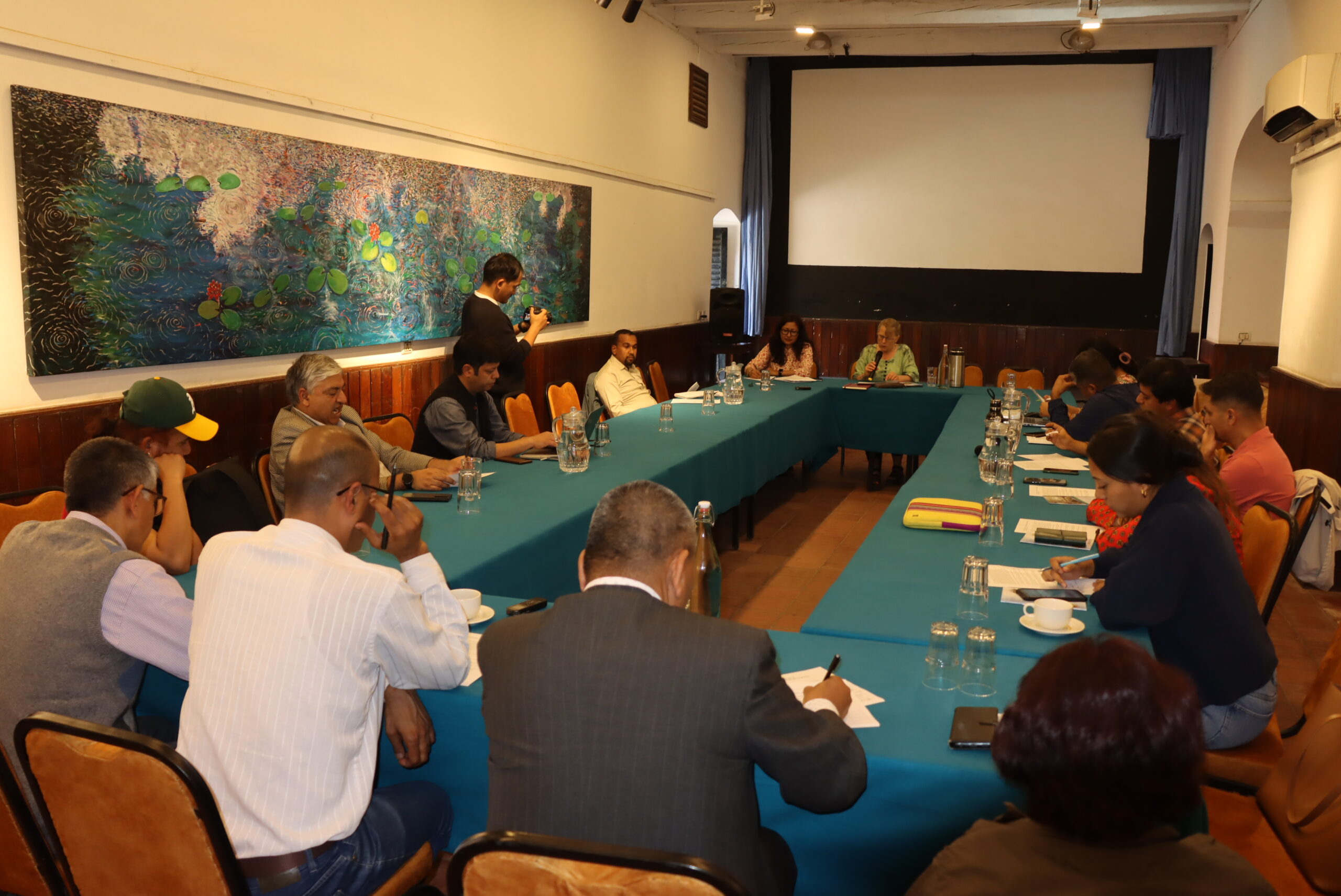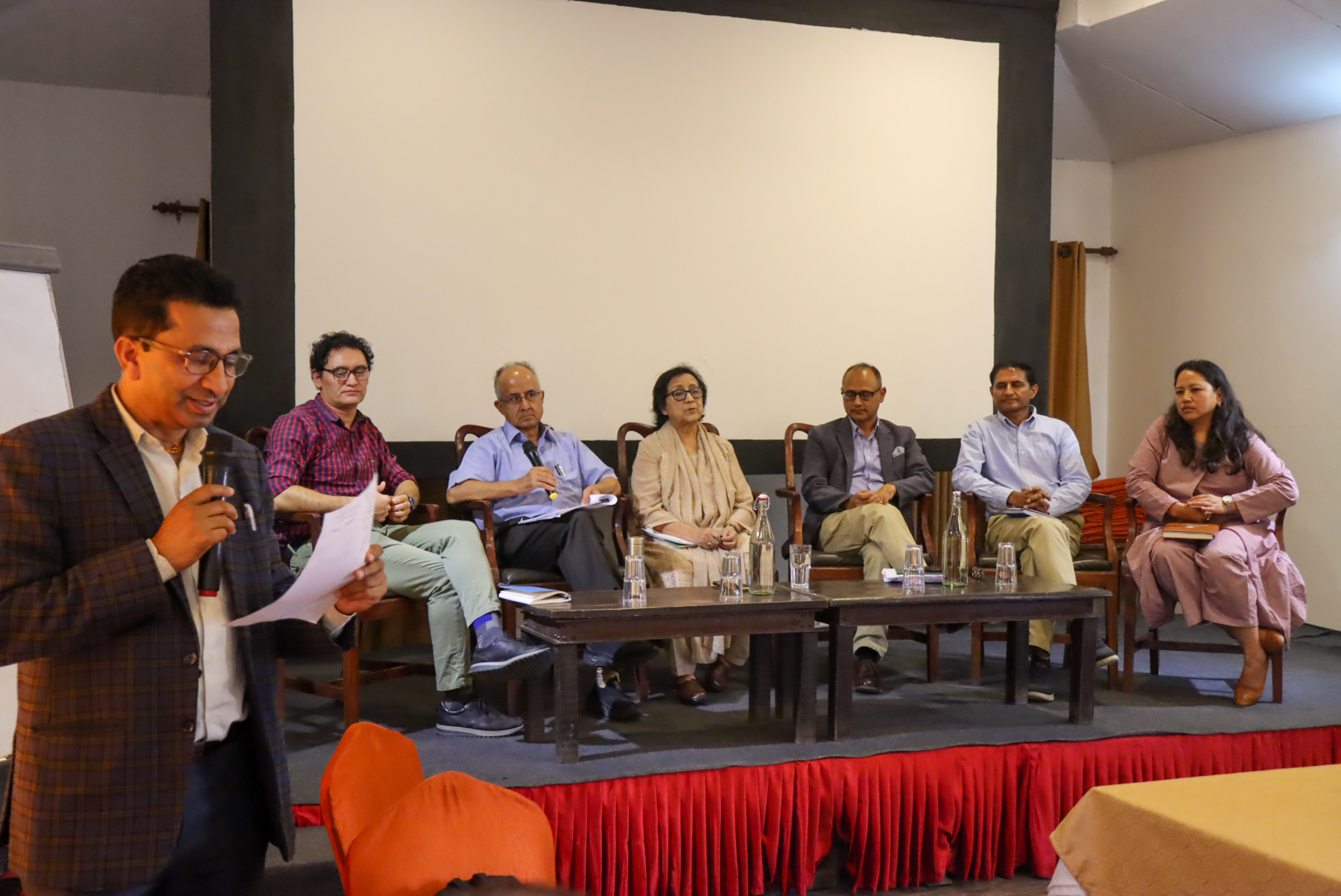On January 12, 2025, Martin Chautari hosted an insightful research seminar led by Dilli P. Poudel, PhD, Senior Researcher at Southasia Institute of Advanced Studies (SIAS) on “Socialising Tomorrow’s Cities: A Concept and Practice.” The session explored the findings of a five-year multinational research project funded by the UKRI Global Research Challenge Fund, focusing on fostering equitable and risk resilient urban planning.
Dr. Poudel commenced his presentation with a welcome remark, followed by an overview of the project. The participants were briefed about the project’s aim to reduce risk for the poor by examining local risk context, restructuring local risk governance, engagement with community and scientists, visioning, and designing tools for institutionalization. More than 200 researchers and 50 institutions across the world were involved in the project, engaging in Khokana (Nepal), Quito (Ecuador), Istanbul (Turkey), Nairobi (Kenya) and Rapti (Nepal), Chattogram and Cox’s Bazar (Bangladesh), Nablus (Palestine) and Dar Es Salaam (Tanzania).
With direct involvement from multidisciplinary angles of social scientists, physical scientists, engineer/urban planners, the research created an integral tool, “Tomorrow’s Cities Decision Support Environment (TCDSE).” This model incorporates all the cross-cutting information for proper assessments and city planning. Dr. Poudel outlined the challenges and learnings faced during project implementation. He explained the concept of “pseudo urban-dwellers”- living in urban areas without access to adequate facilities and risk management plans. He then provided an in-depth look into two chosen Nepal site cases: Khokana (Lalitpur) and Rapti/Deukhuri (Lumbini Province), towns facing challenges of rapid urbanization, haphazard construction and increasing risks and vulnerabilities.The knowledge co-production process was briefed to the attendees relating to understanding risks, creating participatory hazard mapping, engaging with local risk management institution, visioning, and decision making. He further emphasized on the importance of documenting local knowledges, incorporating their understanding into actionable urban planning process to actively engage the communities in the development of resilient and equitable cities.
Dr. Poudel highlighted the adoption of Tomorrow’s Cities findings by the community members and the local government in executing local plans and policies to address the risks and vulnerabilities. This shows the importance of future oriented researches as adopting such holistic approaches and addressing the prevailing socioeconomic inequalities can create equitable access to opportunities, maintain harmony and avert risks in increasingly heterogeneous community.
The seminar brought together diverse participants which fostered intriguing discussions during the Q&A session. Several topics related to the importance of local/ indigenous knowledge in urban planning, ancestral urban planning endeavors, cultural preservation, ensuring gender equality and inclusivity while incorporating modern infrastructure for sustainability were discussed. Some of the critical issues raised were on the severity of negligence of local risk geography and poor urban planning which contributed to the recent severe cases of inundation, floods and landslides around the cities. Likewise, Dr. Poudel explained about the presence of female representation during project engagements and formal discussions to combat gender discrimination. Another key concern of the participants revolved around why some community members tend to neglect the foreseen risks and build homes in hazardous environment. Dr. Poudel stressed on the importance of awareness for the communities to take the risk components into consideration.
Dr. Poudel concluded the session by recommending that tomorrow’s cities should not be restricted to physical development only but also the one that reflect their local culture, livelihood practices, conservation of forest and resources to actualize resilient, equitable and economically sustainable tomorrow’s cities urban planning.




